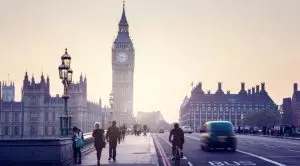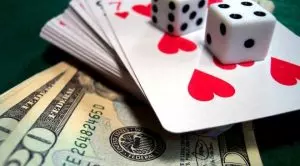 The National Health Service (NHS) is making preparations to cut all ties to its addiction clinics’ funding by the UK gambling industry because officers fear that gambling-related money could compromise their work. The move of the NHS comes at a time when public health concerns have been constantly rising, along with calls for gambling products and services to be addressed in the same way as tobacco products.
The National Health Service (NHS) is making preparations to cut all ties to its addiction clinics’ funding by the UK gambling industry because officers fear that gambling-related money could compromise their work. The move of the NHS comes at a time when public health concerns have been constantly rising, along with calls for gambling products and services to be addressed in the same way as tobacco products.
As reported by The Times, sources close to the matter have revealed that the final decision will be made by the end of the week, so the existing links between the NHS and the gambling sector are cut before the beginning of the new financial year. A spokeswoman for the NHS revealed that no final decision had been made yet. The unnamed sources familiar with the situation said that the additional cost to the health service is likely to be absorbed in funding that was already unveiled for the body’s gambling treatment services’ expansion.
According to a study by the UK Gambling Commission (UKGC), which was published in the summer of 2021, about 40% of bets in the UK are currently placed online.
The research also found that almost 1 in 4 adult Brits had placed a bet over the Internet in the four weeks preceding the survey. As Casino Guardian already reported, the social isolation and the stay-at-home measures during the coronavirus pandemic results in a massive increase in the number of visitors to online gambling platforms, with some of the gamblers not only spending more than they can afford to but also losing their life savings during their gaming sessions.
Problem Gambling Charities Need to Be Independent from the UK Gambling Sector
 The National Health Service received a total of £1.2 million from the local gambling sector via the largest gambling charity organisation in the country – GambleAware – in the year to March 2021. The money was used for funding the NHS addiction clinics across the UK. Reportedly, the money received by the NHS as funding represents less than 50% of the operational costs of the problem gambling clinics in London, Manchester, Leeds and Sunderland.
The National Health Service received a total of £1.2 million from the local gambling sector via the largest gambling charity organisation in the country – GambleAware – in the year to March 2021. The money was used for funding the NHS addiction clinics across the UK. Reportedly, the money received by the NHS as funding represents less than 50% of the operational costs of the problem gambling clinics in London, Manchester, Leeds and Sunderland.
The director of the National Problem Gambling Clinic that is partly funded by GambleAware, Professor Henrietta Bowden-Jones, has noted that the NHS had been asking for independence from the local gambling sector for quite some time. She further shared that it was high time for making the aforementioned announcement of cutting the NHS ties with gambling money, as it would make the National Health Service no longer dependent on the industry.
Campaigners have been calling for the local health service to be freed from links to the gambling sector at a time when the UK Government has been under a lot of pressure to impose stricter measures on the industry and has been reviewing the 2005 Gambling Act. To make things even harder for gambling giants in the UK, in February, The Lancet medical journal is set to publish a paper regarding the need for independent research into gambling-related harm.
The Government is expected to publish its review of the UK Gambling Act of 2005 in the spring, with some Members of Parliament already making sure that the white paper includes sufficiently tough measures.
GambleAware is an independent charity organisation but the truth is that the majority of its funding originates from the gambling sector. The charity not only invests in the development of the National Health Service but also spends over £8 million on addiction and problem gambling clinics operated by other organisations.
Some anti-gambling campaigners, Members of Parliament and public health experts have been calling for a 1% statutory levy to be spent on research, education, prevention and treatment of gambling-related harm. They also insisted on the establishment of an independent body to regulate the matter. They have been blaming the system because, despite all the harm caused to British customers by the industry, gambling operators are free to determine how the money is spent.
- Author


